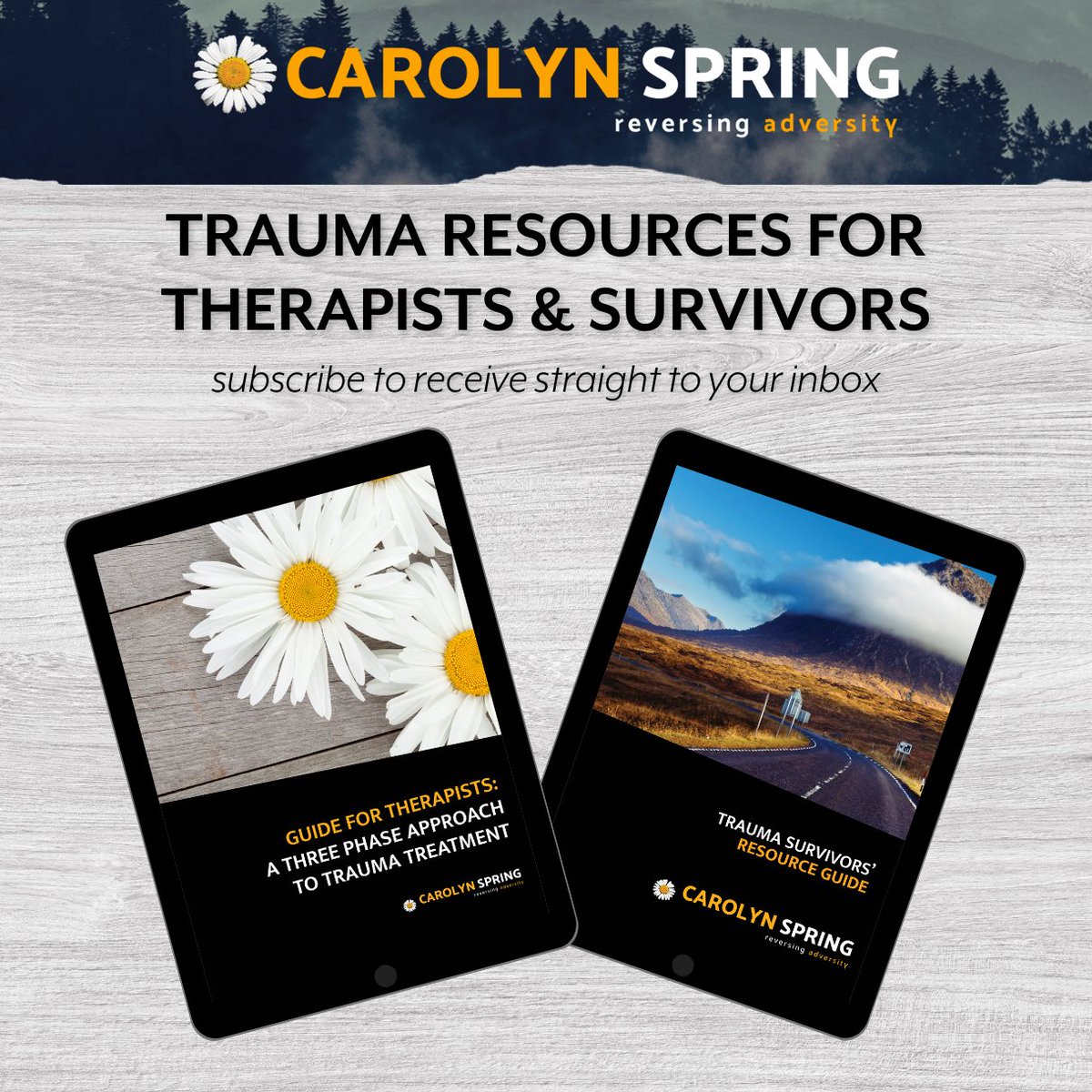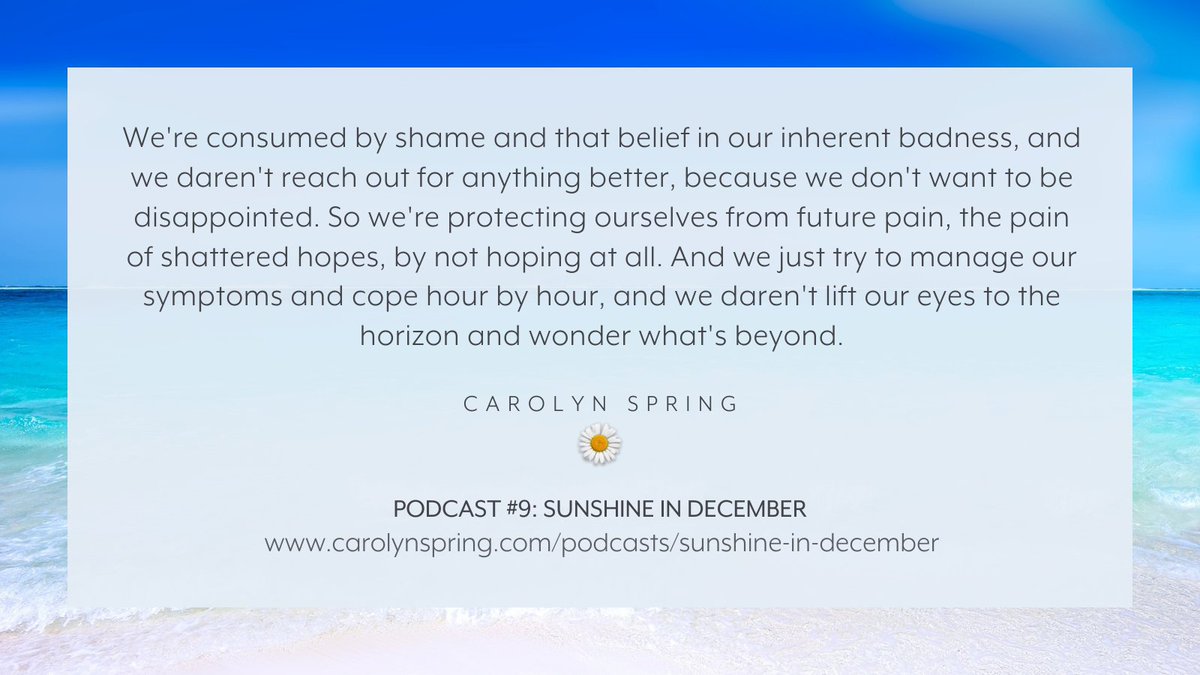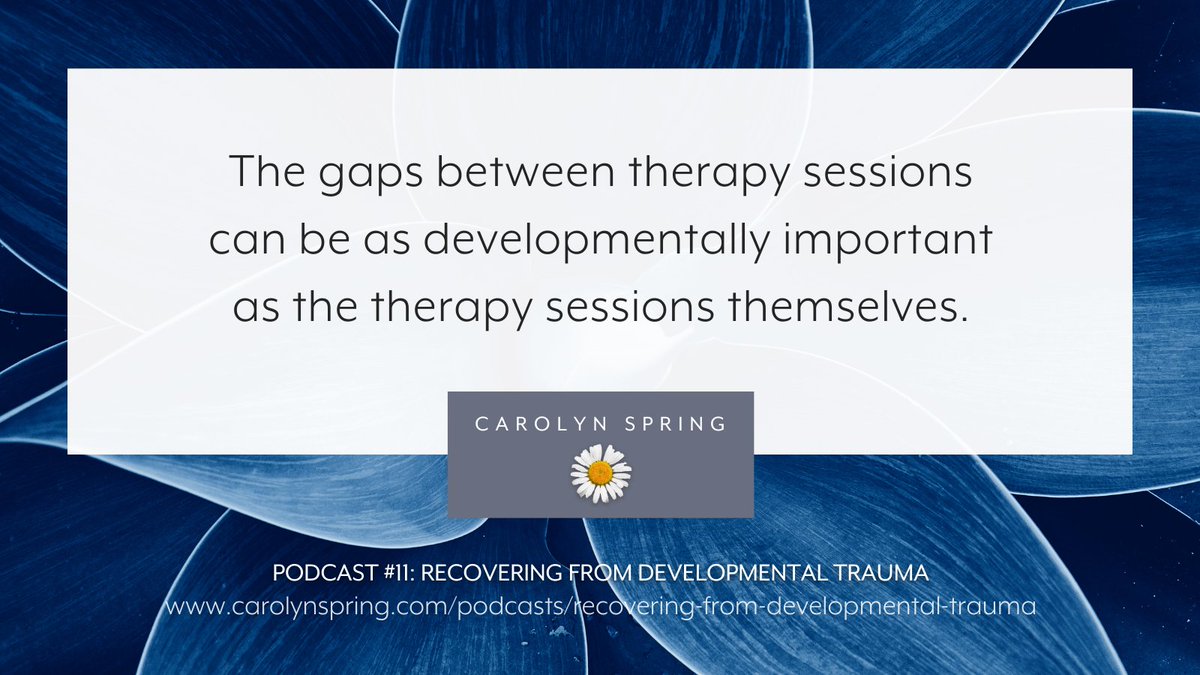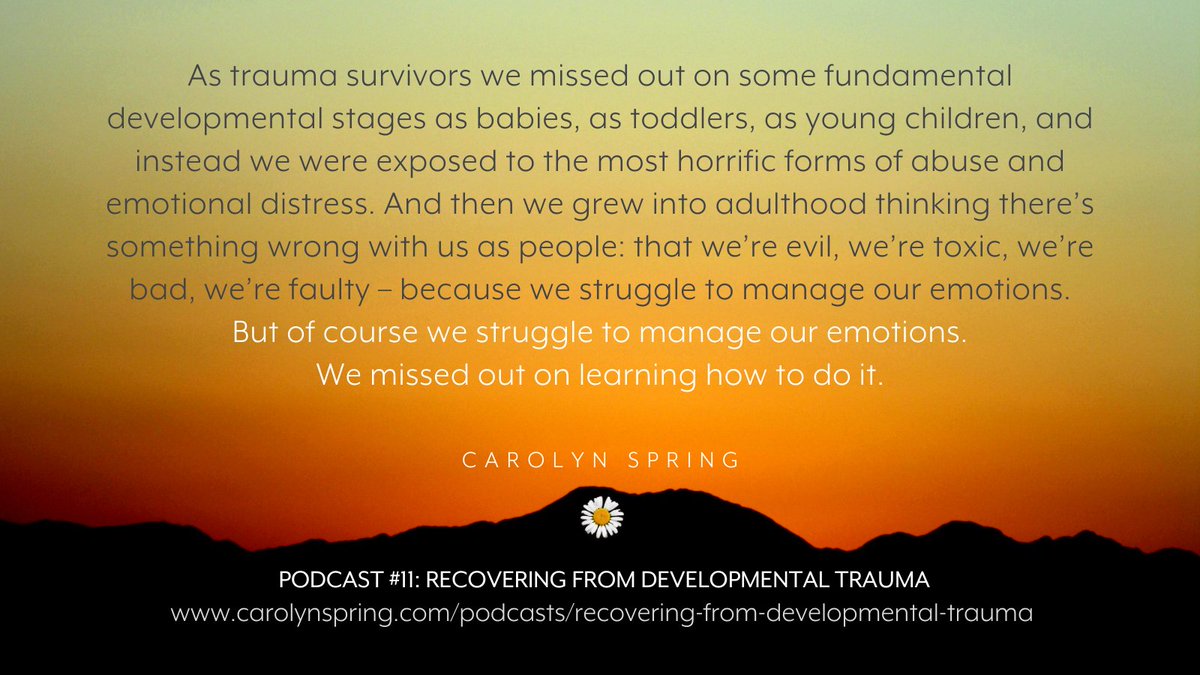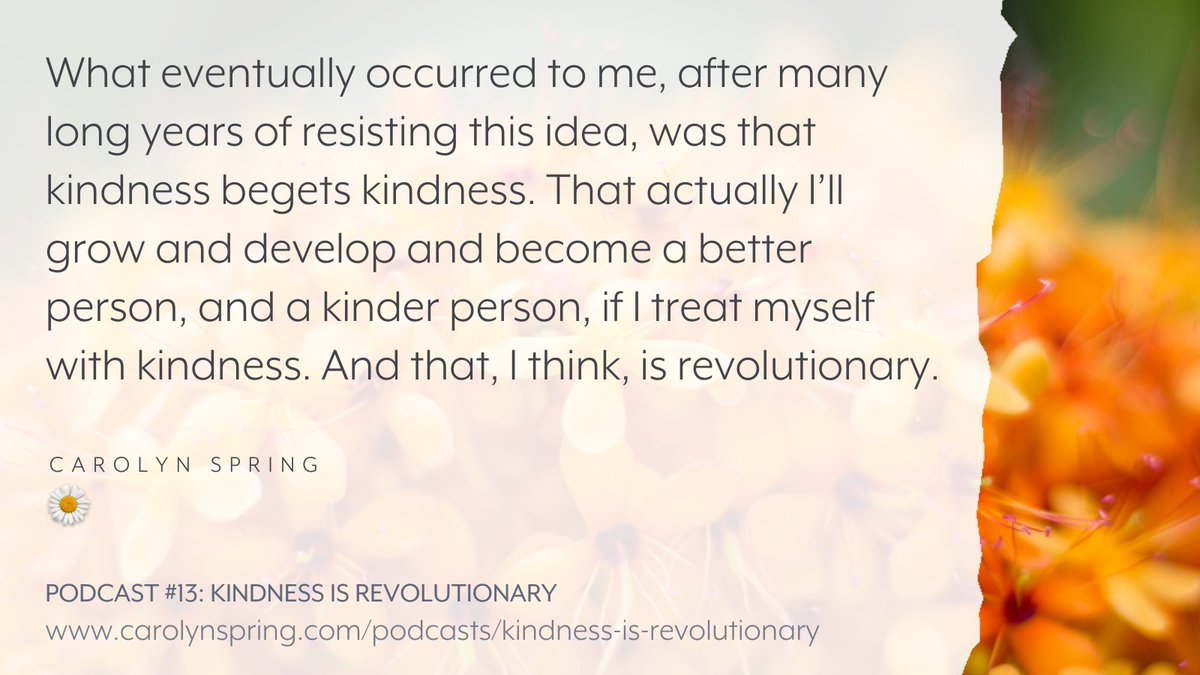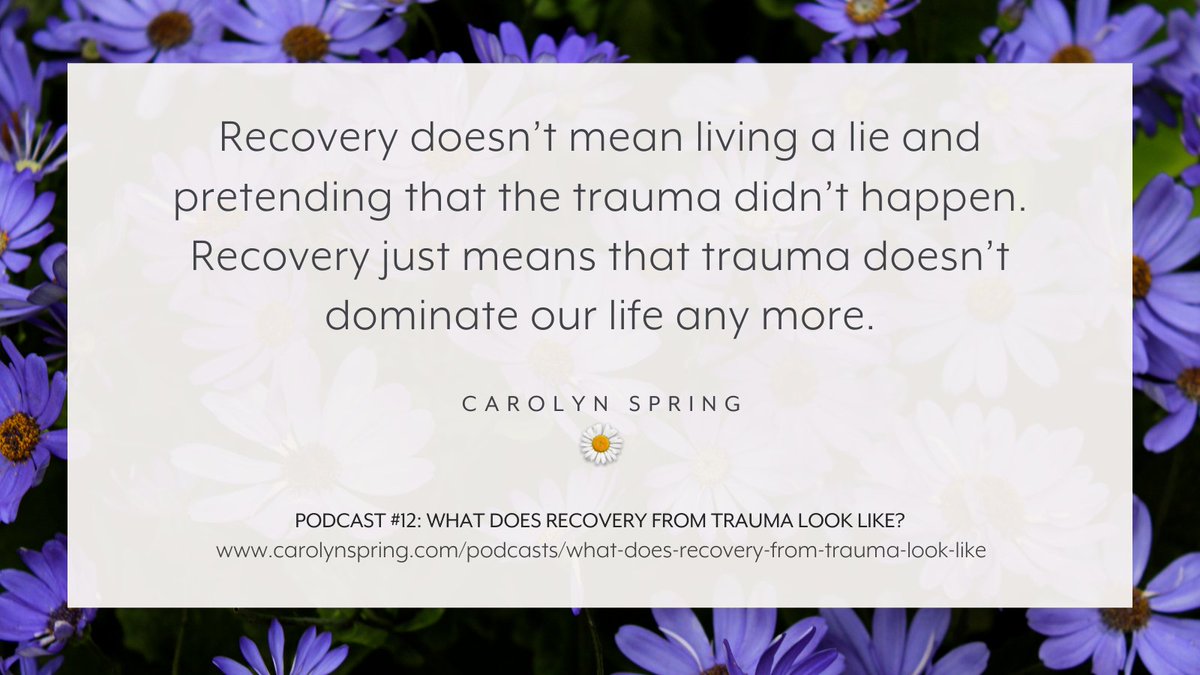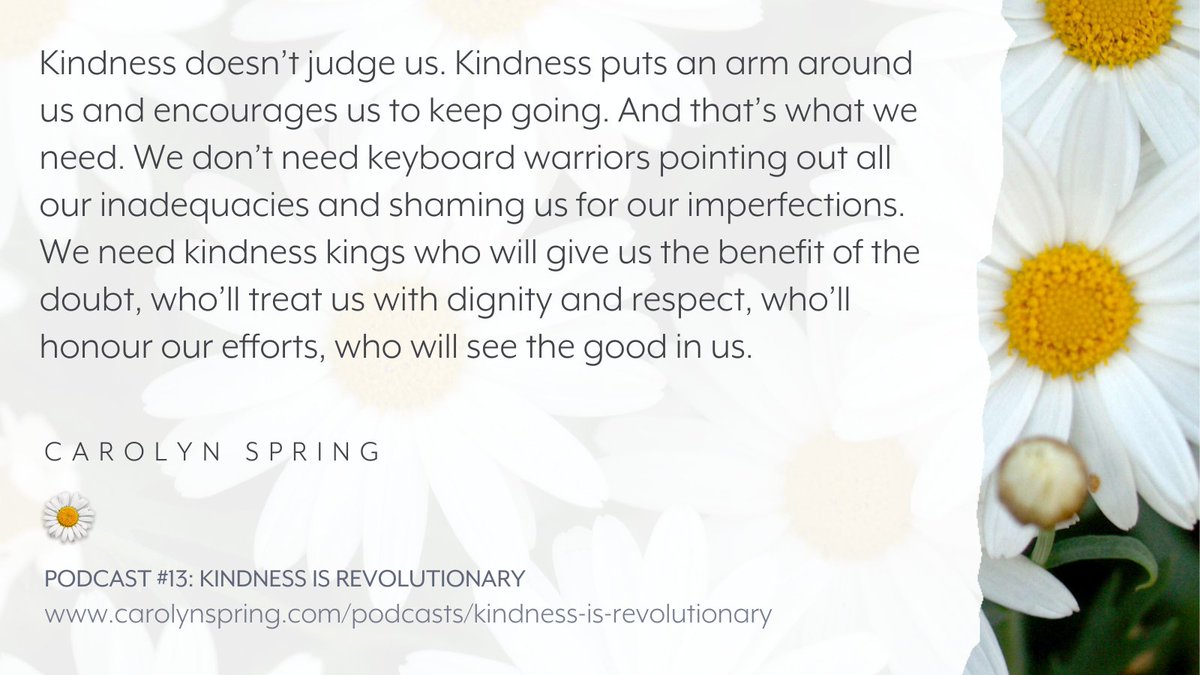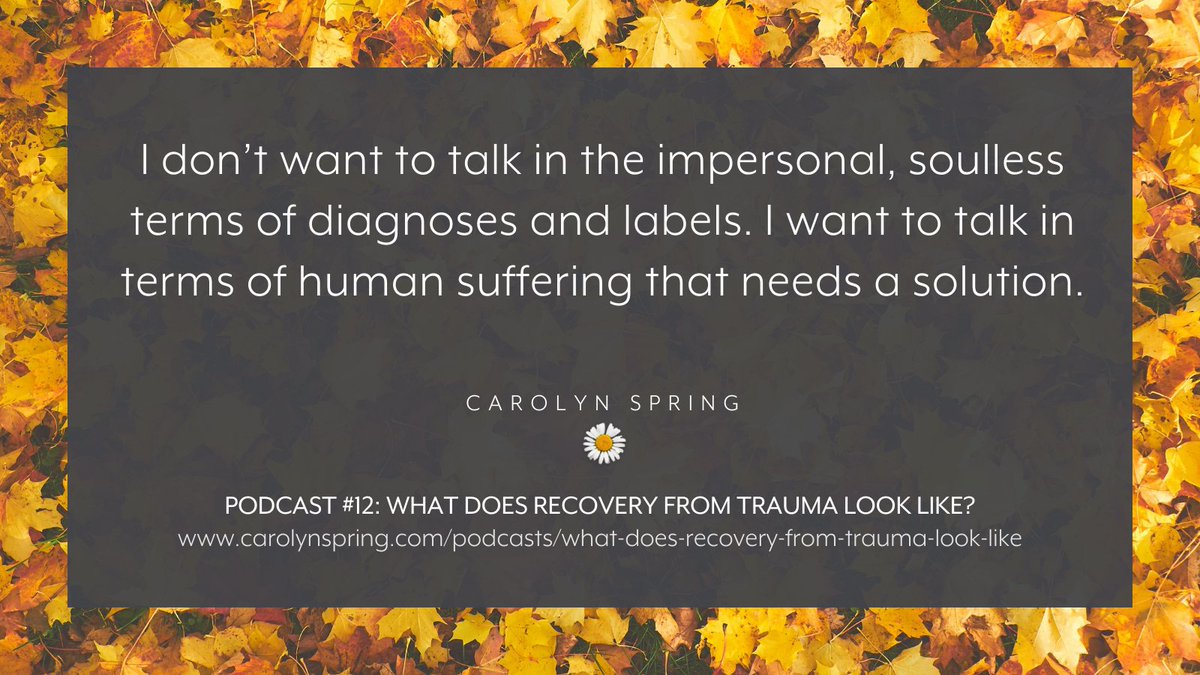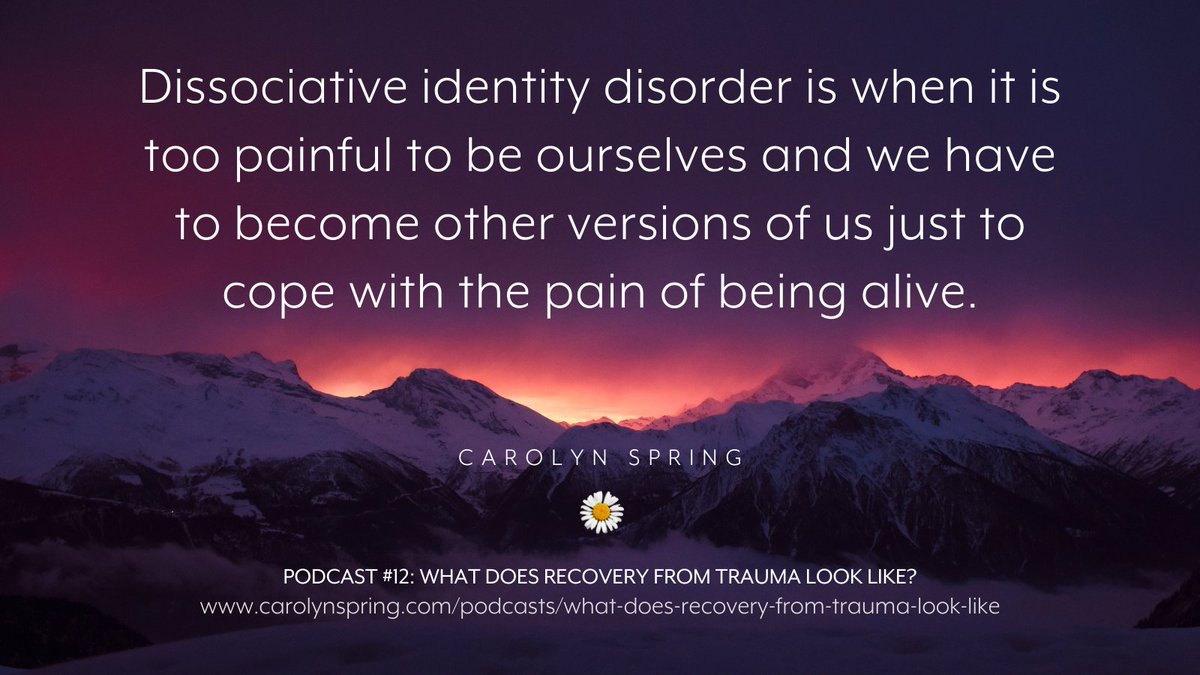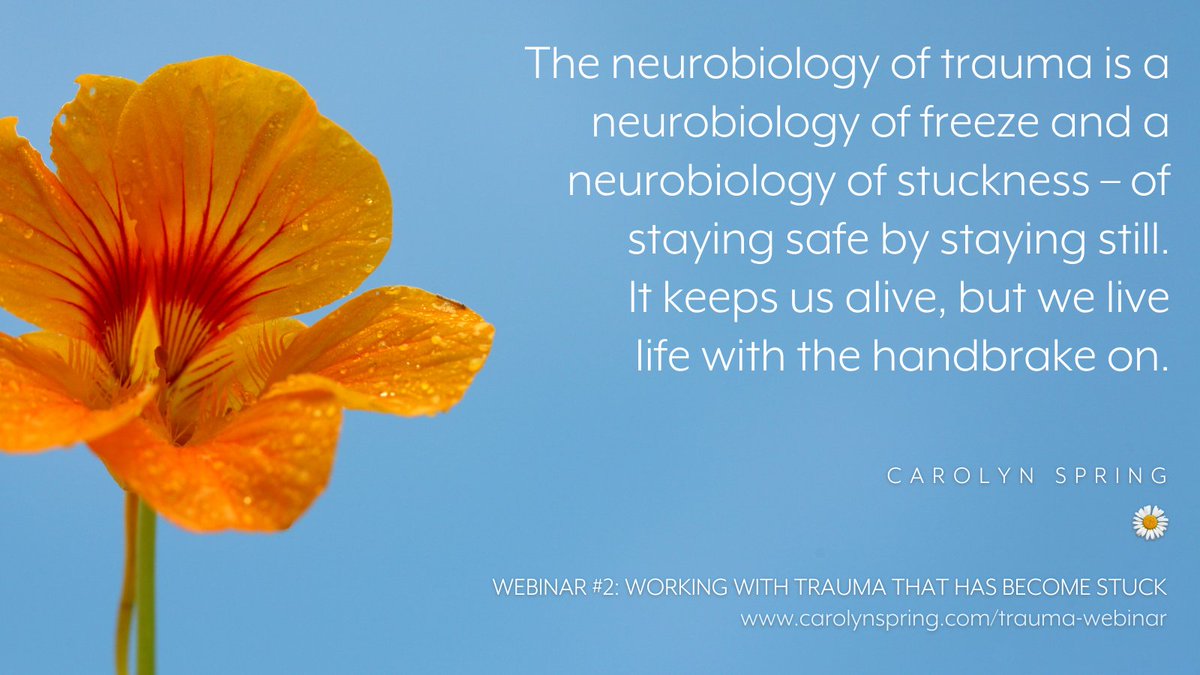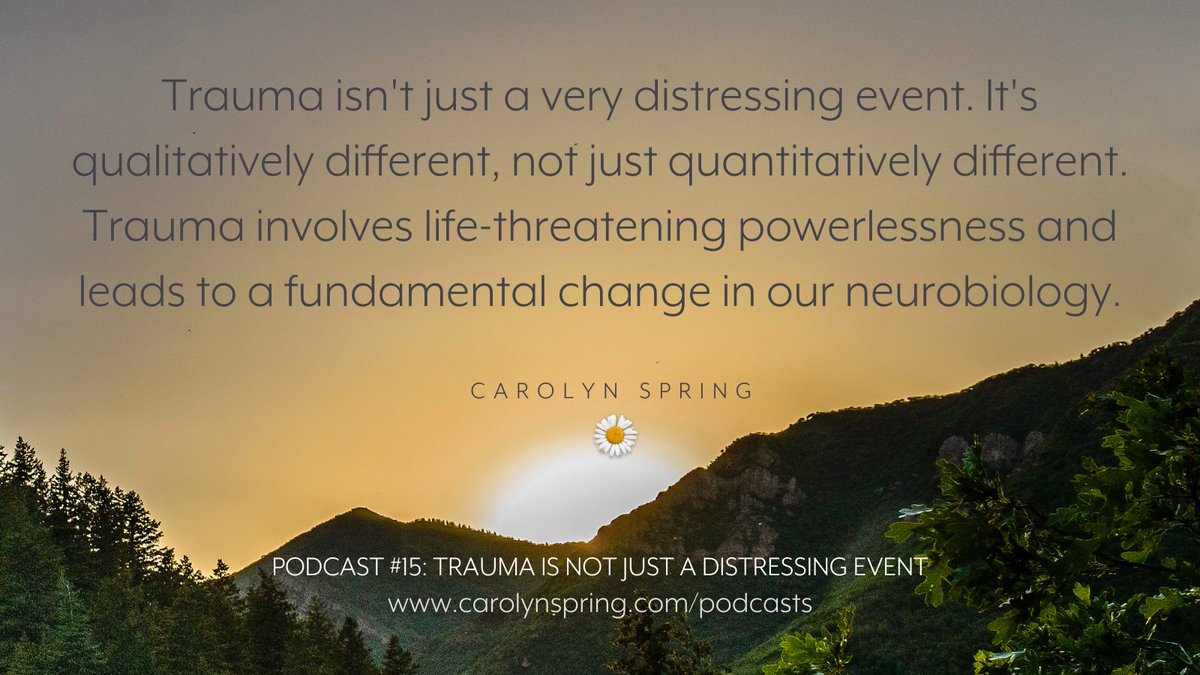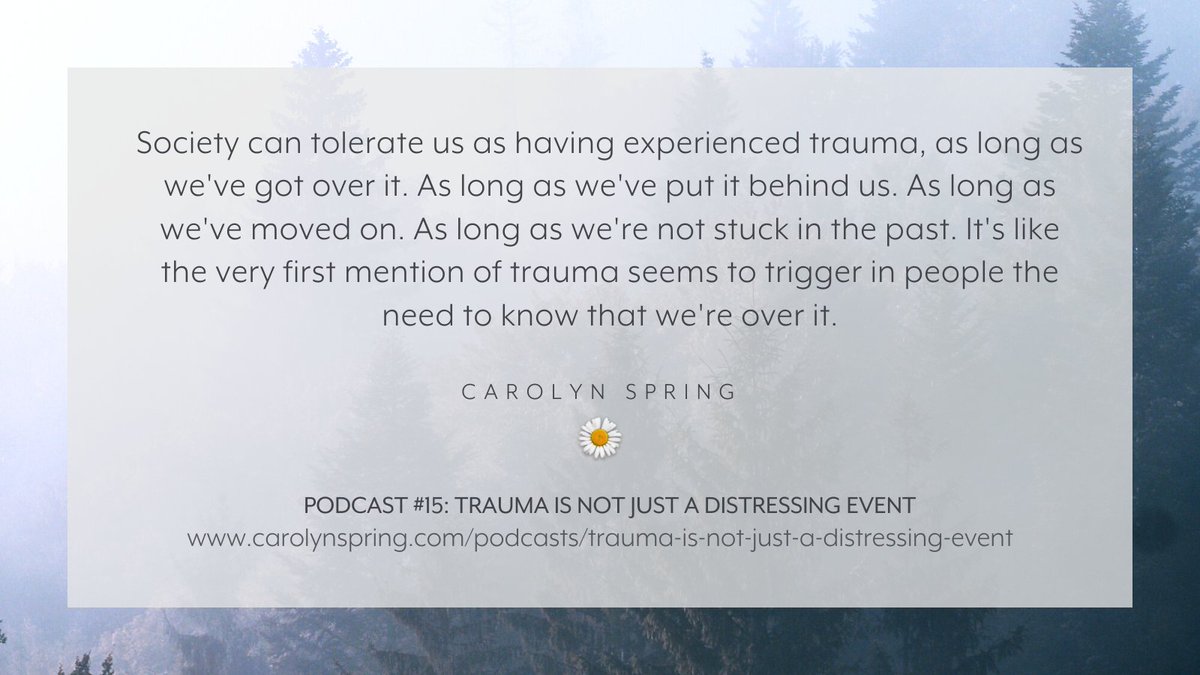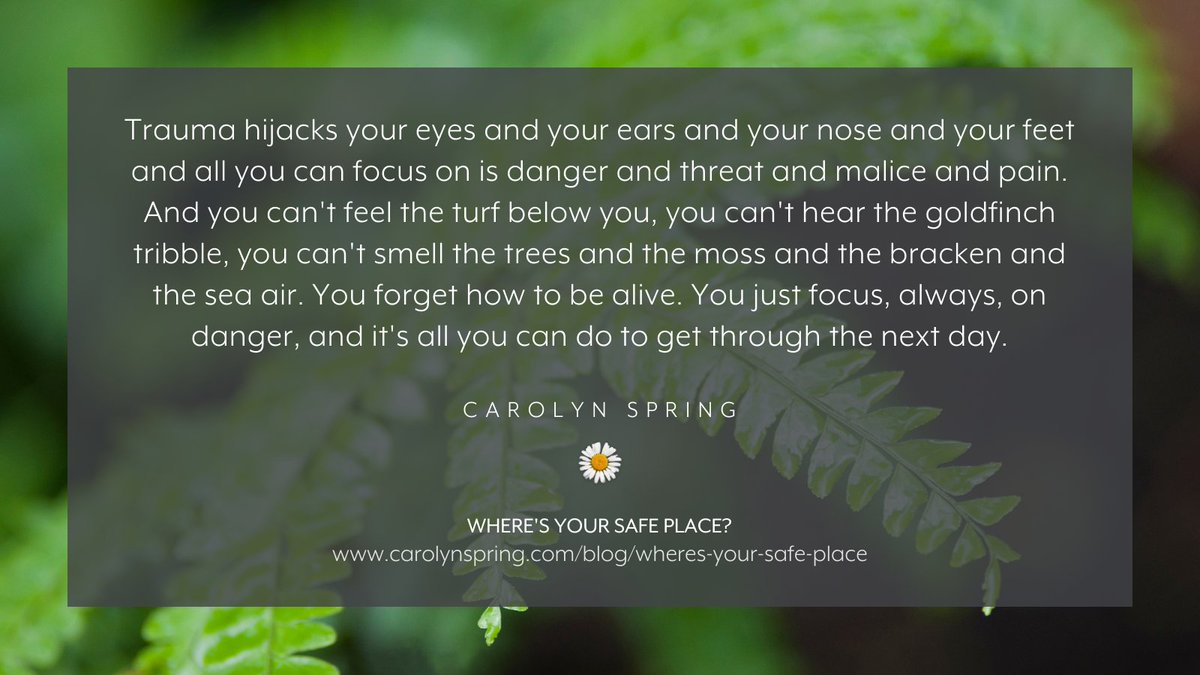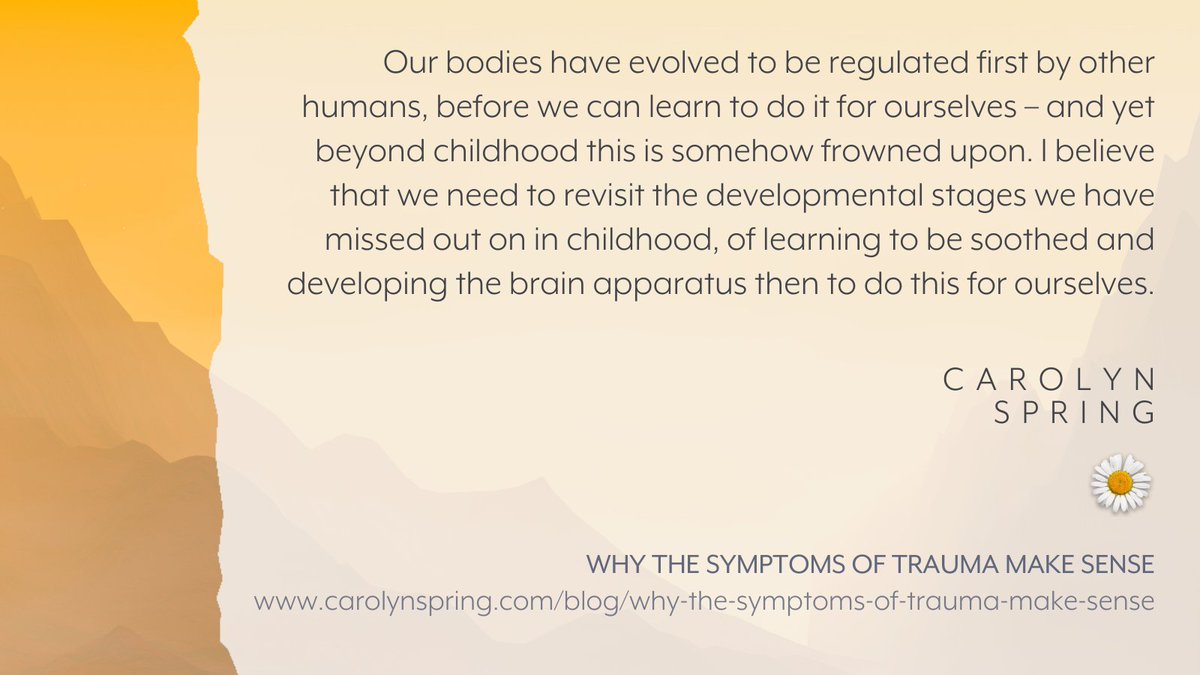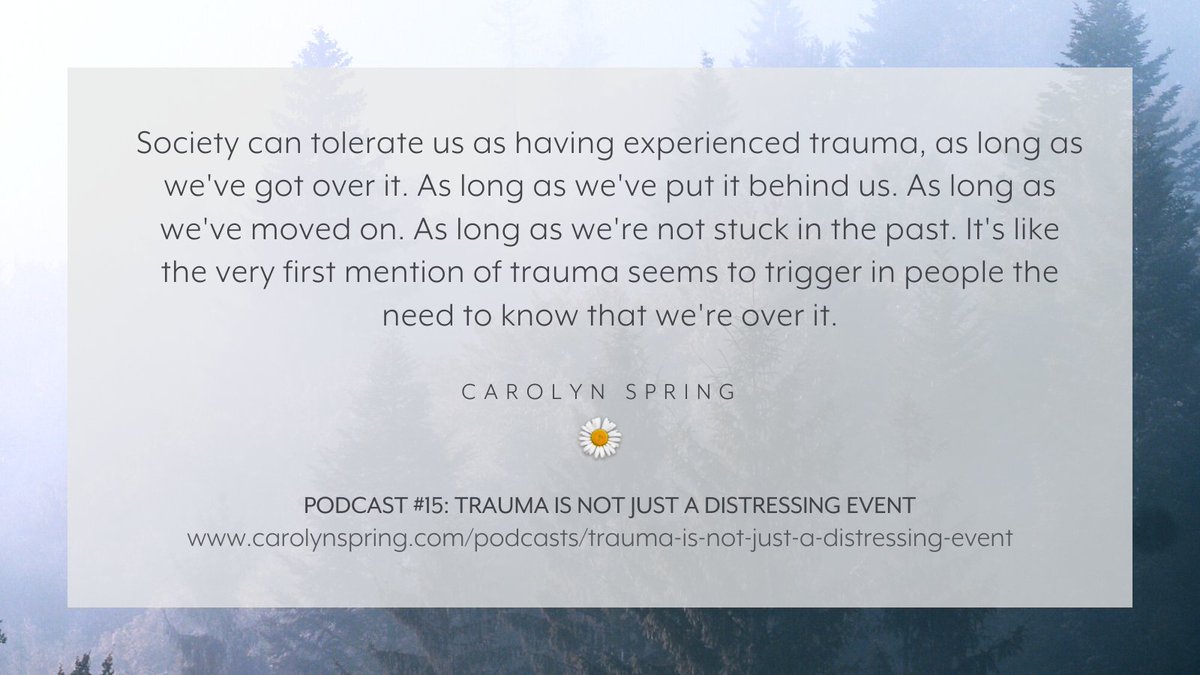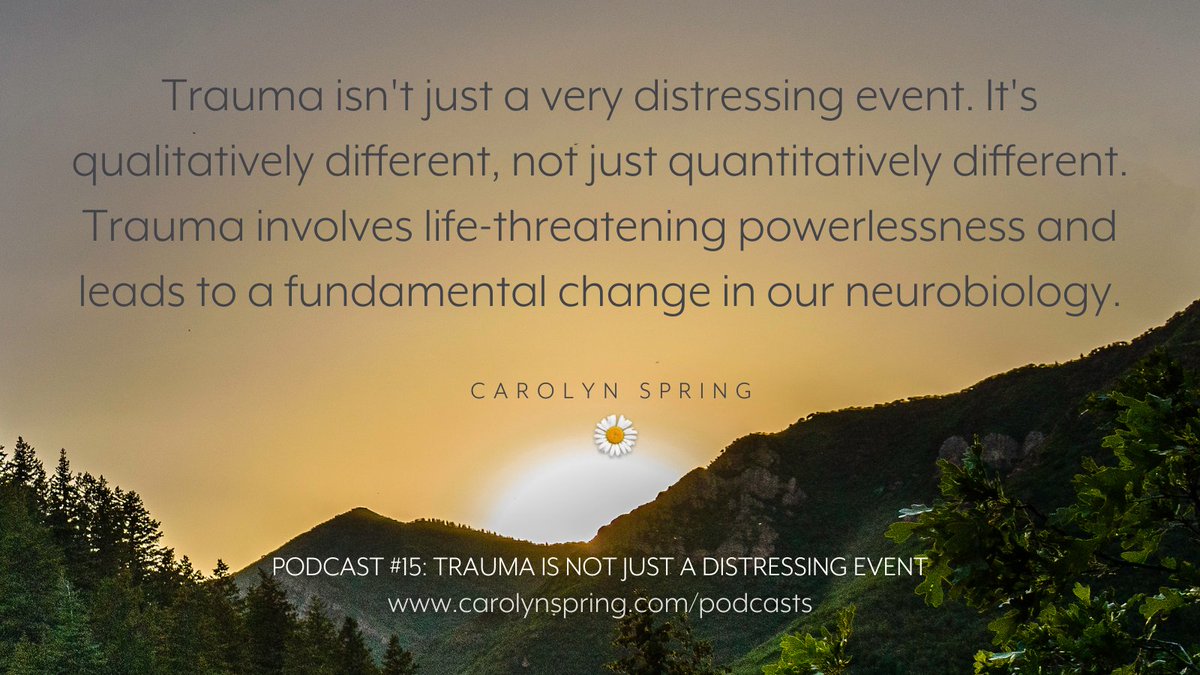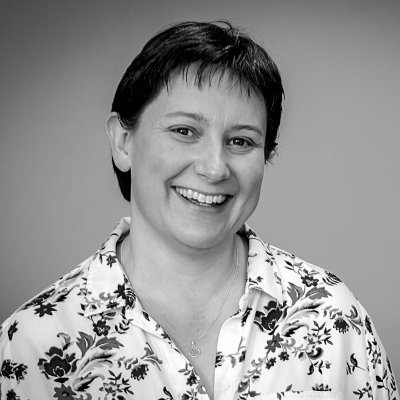
Carolyn Spring
@CarolynSpring
Followers
13K
Following
2K
Media
7K
Statuses
8K
I help counsellors and psychotherapists to help their clients to recover from trauma via training/books/podcasts/resources: https://t.co/TweU8DZzCW.
MediaCityUK, Salford, UK
Joined June 2009
Free trauma recovery guides!. 50+ page Therapist’s Guide: A phased approach to trauma treatment. 100+ page Trauma Survivors’ Guide: Neurobiology-based advice for managing trauma. Sign up to our mailing list: #TraumaRecovery #TherapistsConnect
4
1
15
We need other people to sustain us through dark times. We have evolved as social creatures who are dependent on others for hope, sustenance, and nurture. This is the double-whammy after #trauma and #abuse: a lack of support. Listen: #TherapistsConnect
1
2
10
One of my standard coping mechanisms after childhood #trauma was to refuse to hope for good things. Shame told me that I didn't deserve them, so what was the point in being eternally disappointed?. Listen to my podcast episode: #TherapistsConnect #shame
0
2
7
I hated therapy breaks. They pressed every trigger in me of abandonment, rejection and isolation. But learning to first notice and then tolerate this distress, to work with it in the sessions, ended up transformative. Listen: #trauma #TherapistsConnect
0
0
3
It's easy to blame ourselves (or be blamed by others) for struggling with our emotions and our mental health, as if we're 'choosing' in some way to be like this. But it's not a choice: we've missed out on key learning. Listen: #trauma #TherapistsConnect
0
0
2
Kindness, kindness, kindness. I can't overstate the importance of kindness in #trauma recovery – surrounding ourselves (somehow!) with people who are kind, and being as kind as we possibly can be towards ourselves. Listen to my podcast: #TherapistsConnect
0
0
3
When we heard the word 'recovery' we can often as #trauma survivors feel pressured: into the impossible, and into putting up and shutting up, just to keep other people happy. But that's really not what I mean. Listen to my podcast at #TherapistsConnect
0
1
2
Kindness is massively undervalued in recovery from the extreme (and often unimaginable) unkindness of abuse and #trauma. We think we need something medical, complex, 'official'. But how about we at least START with kindness?. Listen: #TherapistsConnect
0
1
5
There is every good reason why we develop dissociative identity disorder: because the #trauma we've suffered has made it incredibly painful to be us, even to be alive. What does recovery therefore look like?. Find out on my podcast': #TherapistsConnect
0
0
4
Trauma is beyond-painful. Suggesting that it can be resolved quickly and easily – with a kind of rah-rah toxic positivity – can feel offensive. Recovery IS possible, but only with the right support (often hard to find). Listen: #trauma #TherapistsConnect
0
3
8
Growth is hard. Like toddlers trying to walk, we have to try. But when we try, so often we fall. But what's the alternative? Trauma recovery is full of tumbles. Listen to podcast #11 'Recovering from developmental trauma': #TherapistsConnect #trauma
0
0
4
We don't become stuck with #trauma because we're not trying hard enough to recover, or don't want to recover (!), or because there's no way to recover. We become stuck because stuckness is part of the nature of trauma. Find out more: #TherapistsConnect
0
1
6
It's often hard to define what 'counts' as #trauma. But if we consider how our bodies/brains evolved over millions of years to deal with threat, our post-traumatic symptoms make perfect sense. This 'fable' about 'bears' explains it: . #TherapistsConnect
0
0
3
We tend to think about #trauma in terms of the 'badness' of the event. But that's a poor way to define it, as if there's some authoritative list in the universe that determines whether or not you're justified in being impacted. Listen: #TherapistsConnect
0
0
4
Stuckness often provokes frustration from others: ‘Why can’t you just [move on/let go of the past/stop being triggered] etc.’ But stuckness actually makes sense in the neurobiology of trauma as a strategy of safety-seeking. Watch video: #TherapistsConnect
0
0
5
Trauma doesn't just affect us as survivors – it affects everyone who hears about it, often provoking a deep avoidance and dissociation: a desire not to know. Listen to 'Trauma is not just a distressing event' on Spotify or at . #TherapistsConnect #trauma
0
1
4
What our brains focus on changes after #trauma – instead of being able to notice and enjoy beauty and safety and relationships, our focus unconsciously is always on threat. Therefore it's vital that we find a safe place. Read more: #TherapistsConnect
0
1
0
Our individualistic, fast-fix culture often criticises us for being traumatised and insists that if we don't heal ourselves (and right now!) then we're being too 'needy'. But recovery from #trauma requires real human beings. Read more: #TherapistsConnect
0
0
1
Trauma doesn't just affect us as survivors – it affects everyone who hears about it, often provoking a deep avoidance and dissociation: a desire not to know. Listen to 'Trauma is not just a distressing event' on Spotify or at . #TherapistsConnect #trauma
0
1
2
We tend to think about #trauma in terms of the 'badness' of the event. But that's a poor way to define it, as if there's some authoritative list in the universe that determines whether or not you're justified in being impacted. Listen: #TherapistsConnect
0
0
1

